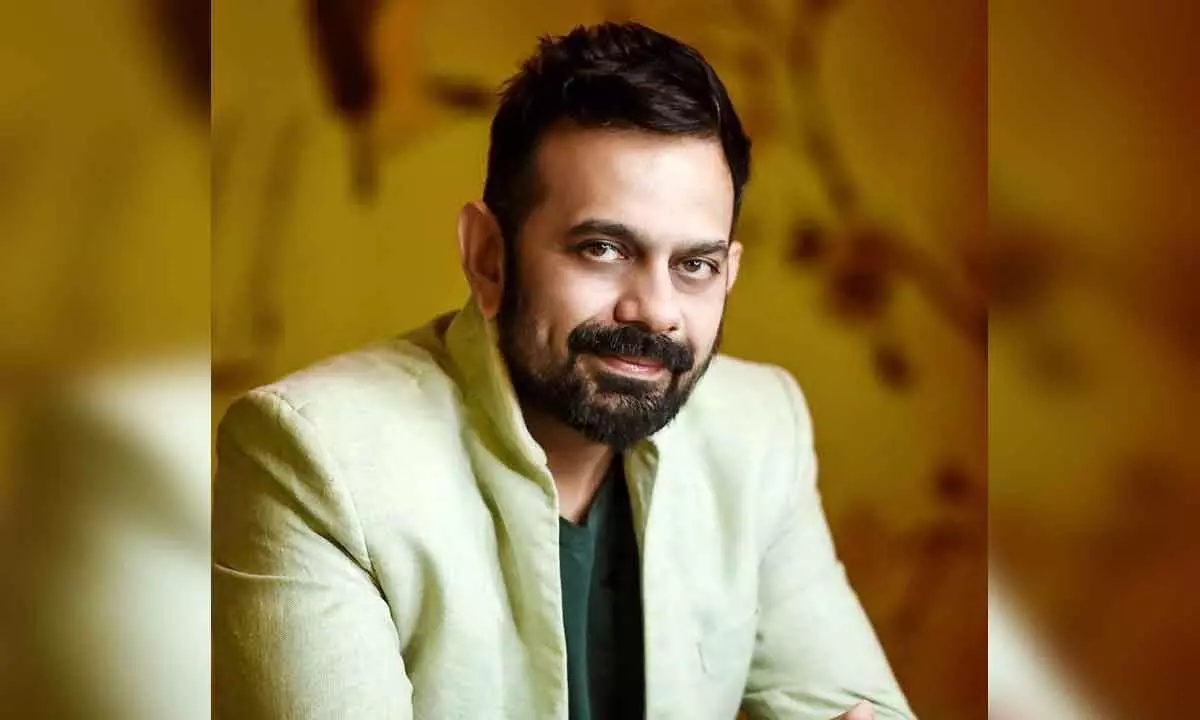Experiential tech changing the way how we eat and drink
Customers can now visualize and interact with virtual menus, explore digital restaurant settings, and even virtually prepare their meals thanks to VR and AR, says Chrome Asia Hospitality co-founder Dhaval Udeshi
image for illustrative purpose

Dhaval Udeshi, Co-Founder of Chrome Asia Hospitality, believes that experiential technology is changing the way people interact with food and drink. In an exclusive interview with Bizz Buzz, Udeshi shared his thoughts on the future of the food & beverage (F&B) industry, his company's expansion plans, and the importance of creating unforgettable customer experiences
How is experiential technology impacting the food & beverage (F&B) industry?
The F&B industry has been greatly impacted by experiential technology, which has completely changed how consumers interact with food and drink. Customers may visualise and interact with virtual menus, explore digital restaurant settings, and even virtually prepare their meals thanks to virtual reality (VR) and augmented reality (AR). Moreover, interactive touch-screens, digital ordering platforms, and self-service kiosks have improved the convenience and effectiveness of the ordering process, decreasing wait times and raising consumer satisfaction. Overall, experiential technology has changed the F&B sector by giving consumers engaging and distinctive experiences, which eventually spur innovation and elevate the eating experience.
What are your thoughts on opening an F&B business? What is your background?
Hailing from a humble Gujarati family, never did I think I would be able to run and manage the best restaurants in Mumbai. In my early days, I wasn’t aware of too many cuisines, but my experience in launching a small restaurant in Ghatkopar piqued my interest in F&B, then moved onto a Lebanese chain. I eventually also ventured in the wedding catering space which was an eye-opener for me.
My turning point came when filmmaker Sanjay Shetty gave me an opportunity to partner with him in one of the most celebrated bars in Mumbai - London Taxi which has now culminated to become one of our best brands- Demy. Being the globetrotter and keen traveller that I am, on my solo trips to Europe I enjoyed the innovative food and cocktail offerings at local spots. My travels solidified my belief in the ‘power of experiences’, which further strengthened my vision for Chrome Hospitality.
Today, I can proudly say that all our restaurants are unique in the all-day dining space and offer the best of F&B which brings global experiences closer to home. With Chrome, our biggest achievement is creating ‘homegrown brands inspired from the world.’
What’s your current portfolio of restaurants? Please throw some light on your expansion plans.
Chrome Hospitality is currently operating multiple outlets in Mumbai, and the signature brands include Demy, EVE, Shy, Kyma, Donna Deli amongst others. We plan to expand our footprint across segments in 2023. We plan to announce five new brands and open eight new outlets for our main brands across India.
Recently, we successfully launched Kaia, our first boutique hotel in Goa .This hotel redefines slow living and show visitors and never seen before side of Goa. In addition, we will open two new outlets of EVE and two new concept bars in Mumbai's Bandra. Also, we will be expanding our team and will add 500 new members across our restaurants. We are also focussing on establishing job opportunities across all key markets and will look at establishing fair trade practices across the spectrum.
Please tell us about Chrome Hospitality and the journey so far.
Chrome Hospitality, based in Mumbai, was founded in 2019 with the goal of building experience-driven restaurants across the country. Chrome Hospitality owns, manages, and helps new age restaurants, and now have entered the boutique hotels space in Goa.
Back in 2019 when Chrome was launched, we observed a long-standing gap in the casual dining segment, we wanted to bridge the same and were the first one in the country to tap the all-day casual dining. It all began with one outlet in 2019 and we have only grown since then. Multiple outlets, a new hotel and more, we have done it all.
After the lockdown, our aim of producing world-class experiences was heightened, and by 2022, we had established over 1,000,000 square feet of hospitality space in India, and in the next three years, we would have created restaurants on more than 5 lakh square feet of F&B space. We are on an exciting journey to build, scale and create experiences.
With the fast-moving pace of the F&B industry, how do you cope? What’s your USP?
In order to cope with the fast-moving pace of the F&B industry, you need to understand customer needs in detail and modify your operations accordingly. I learnt along the way that the best way to keep customers coming back to restaurants was to focus on creating unforgettable experiences, by elevating the food, cocktails, and overall ambience of the venue. Every detail needs to be paid attention to and hence it becomes important to lay focus and hustle hard. With Chrome, our biggest USP is creating ‘clean long running concept brands inspired from the world’ and this is led by a strong core belief of food being the vehicle that brings people together.
With the dining habits of young Indians changing dynamically, what are some opportunities/ trends we should look out for in the F&B market?
I feel like the young Indian is a well-travelled global citizen who isn’t afraid to try new cuisines and experiences. Having said that, they appreciate their roots and enjoy Indian culture too. I call this trend ‘rooted experimentation’. Also, dining out is no longer just a form of celebration. It is part of how they express themselves, so brands need to make sure that they are open for longer hours. That’s why you see a lot of ‘all-day’ cafes and bars popping up and we too are betting big on this trend.

